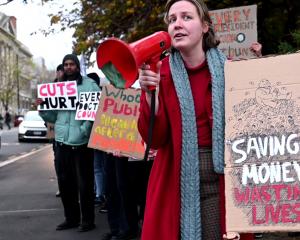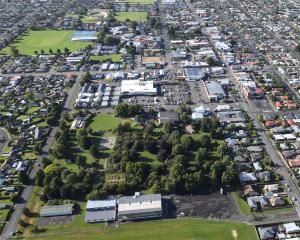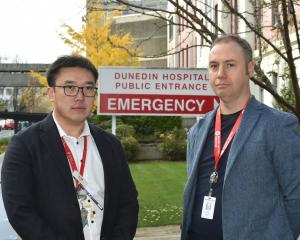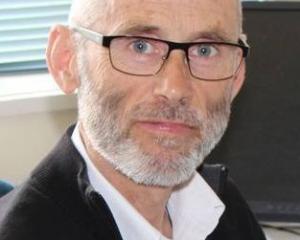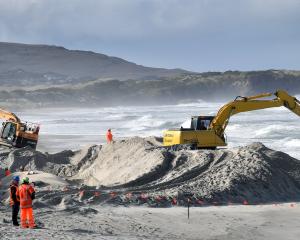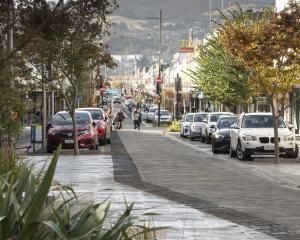Nine gruelling days devoted to Dunedin's number one topic of debate, the Otago Stadium, concluded yesterday.
Public submissions ended in the morning, and the afternoon allowed time for the council to answer the critics of its plan change.
The plan change is to alter land zoning for the possibility of a new stadium, and a new harbour arterial route.
There is no doubt many people were confused as to what the hearing was about.
Some made that clear in their evidence.
Council counsel Lauren Semple homed in on many submitters' tendency to speak about funding for the stadium, which was not within the purview of the commissioners.
She noted in her closing submissions it would not have escaped the notice of the commissioners only one expert witness had been called on in five full days of public submissions.
"In fact, the majority of submitters have been quick to point out that they speak 'only as ratepayers'.
"In my submission, this is a telling point."
The overwhelming concern had been the use of public money, despite Mr Tasker making it clear that was not a matter for a plan change hearing, she said.
Marc Schallenberg began the day's evidence, claiming air quality in the area proposed was "consistently extremely poor", and he questioned whether air quality samples had been undertaken.
Elizabeth Dickie attacked the Dunedin City Council and Otago Regional Council processes, and the Otago Daily Times coverage of the project, and took a parting shot at the committee, suggesting it would merely "rubber stamp" the project.
The city council had been "unprofessional at best, fraudulent at worst" in its handling of the issue, she said.
Mr Matthews told her the committee could not make a decision on funding, but had to work within the Resource Management Act.
"Using the current jargon, we can't go there," he said.
Stop the Stadium president Bev Butler gave her personal submission, raising the issue of a request from lawyer Stephen Christensen to the Environment Court for priority of any appeal on the stadium issue, something she had been told was "unheard of".
But Ms Butler was cut off early in that argument by Mr Matthews, who told her that advice was wrong.
He said the Environment Court was busy, with a limited number of judges, and considering times for expected appeals was "common practice".
"There's nothing sinister to be inferred from it," he said.
"I can see how, if you're not familiar with the process, it may seem a bit odd."
He was backed by Mr Tasker, who assured Ms Butler there was no conspiracy going on.
Ms Butler gave the committee her view of the history of the project, harking back to peer reviews she said were "damning of the project".
She spoke of her difficulties in getting information, her fight with the regional council over the peer reviews, and a consultation process she said had been "quite corrupt".
Rebecca Everdon opposed the plan change, and asked the commissioners to consider why it was necessary, why it was imperative to do it now, and what it would accomplish.
Ian Dalziel told the commissioners that food, shelter and clothing were necessary.
Sport and stadiums were luxuries, he said.
Ms Semple called for a decision "grounded firmly in the evidence", as any appeal had to have regard to that.
She said the "ethic of stewardship" argument raised to suggest the commissioners take funding into account was "misconceived".
She took some submitters to task for not accessing the evidence available, saying one submitter may have been "less certain of their emotive comparisons" between lpg explosions overseas and what could happen in Dunedin if he had checked information.
Flooding concerns at the site had been considered in a "conservative" way, and floor levels set to reflect that.
Counsel Michael Garbett said road designs were conceptual, and the council was seeking alternatives to the gyratory in particular.
He dismissed a suggestion from the Mobil service station and Automotive Solutions that they were not consulted.
The suggestion did not stand up to scrutiny, he said.
Even if there had been no consultation, that was not a procedural problem, as it was not required.
Mr Tasker adjourned the meeting, and said commissioners would begin deliberations next week.

